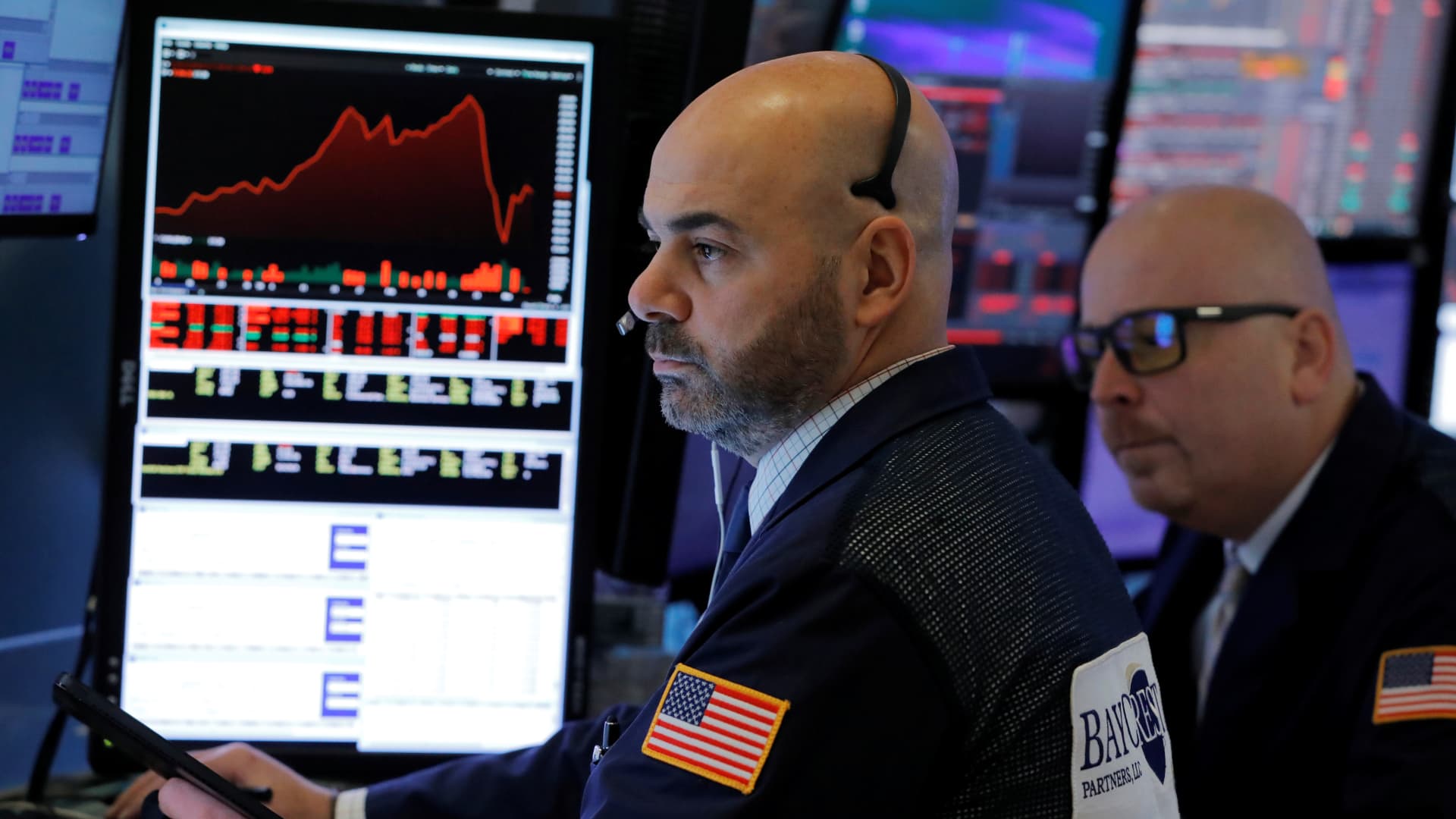Volatility reared its head again last week, with U.S stocks posting their worst week since June as traders responded to growth fears, hot inflation data and the possibility of a 100 basis point rate hike by the Federal Reserve. It marked Wall Street’s fourth losing week in five, highlighting the fragile state of the stock market. But as stock markets slid, one exchange traded fund in particular outperformed: the ProShares Ultra VIX Short-Term Futures ETF (UVXY), which rose over 13% last week. In contrast, the S & P 500 fell around 5%. UVXY is a inverse volatility ETF with a track record of outperformance in times of extreme market volatility. Its recent rise came amid a spike in the CBOE Volatility Index (VIX), widely known as Wall Street’s fear gauge, which traded at 27.27 at one point last week — within touching distance of the 30 mark that typically indicates high volatility. It’s been been climbing steadily above the 20 level for nearly a month now, amid mounting recession concerns. “In the very short term, the UVXY does very well when the market is caught by surprise and reacts in a bearish way,” Daniel Martins, head researcher and portfolio strategist at DM Martins Research, told CNBC Pro. He noted that the UVXY had jumped 900% in just one month between February and March 2020 at the start of the Covid-19 pandemic. “It is probably the prospect of very quick and sizable gains when everyone else in the market seems to be losing their shirts that I believe is appealing about this fund,” Martins added. But he cautioned that the ETF is not for everyone. Read more What’s next for the sinking yen as Japan hints at intervention? Here’s what the pros say Apple or Samsung? Tech investor Paul Meeks reveals which tech giant he’d buy Morgan Stanley says the S & P 500 is set for a comeback by year-end. These are its top stock picks “If I define investors as market participants that buy and hold their positions for a few weeks or months at least, I don’t think investors should get involved with the UVXY. I believe it is better suited for traders who can afford to keep an eye on price action daily, if not hour by hour,” Martins added. “My advice to those who choose to buy shares of the fund is to: 1. Keep the bet on a short leash and have a clear idea of when to exit the trade. And 2. Size the position appropriately, as an allocation of 10% or higher (maybe even 5%) seems too aggressive for my taste.” He explained that the risks of placing a bet on the UVXY are “substantial”, given that price movements in the UVXY tend to be sizeable, particularly as it is leveraged at a factor of 1.5 times. This means an investor could potentially lose $1.50 for every $1 invested should the investment goes awry. “Moreover, the challenge is timing these rare spikes with precision, which I believe to be nearly impossible,” he cautioned. A safer bet The UVXY is down around 16% for the year, despite the VIX itself being up nearly 50% in the same period. It’s fared even worse on a long-term basis, highlighting why the instrument is more suited as a short-term trade. “In the past five years, despite the spike in volatility driven by the Covid-19 crisis, UVXY has been down a whopping 99% cumulatively. The bottom line is — history tells me that, given enough time, there is a greater chance that the UVXY will be a value destroyer, not a value creator,” Martins said. For market participants who are averse to such high risks and have a longer investing horizon, Martins likes the AGFiQ U.S. Market Neutral Anti-Beta ETF (BTAL) — an “under-the-radar” fund that bets on defensive stocks against higher-risk or higher-beta stocks. “When volatility rises due to a bearish tone in the market, low beta stocks tend to benefit, and BTAL captures that spread between risk-on and risk-off plays. The ETF has the very important benefit of not consistently producing large negative returns over time, as is the case of UVXY,” he said. Eikon data showed that the BTAL is up nearly 10% this year — a “respectable” performance in this year’s bear market, according to Martins.



























































